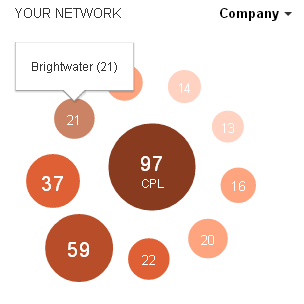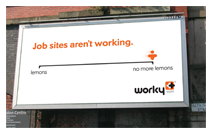An interesting thread on the toppic of the CVs from LinkedIN:
Patrick Myers
Risk Management, Process Improvement, Consulting, Credit and Operational Risk expertise
Resumes – Chronological vs. Functional. Which do you prefer?
There are many opinions as to what resume should be used. Which do you prefer and why?
Answers (18)
Bryan C Webb, P. Eng.
► Technical Product Marketing & Sales Professional ◄
Recruiters ALWAYS want chronological.
On the other hand as long as you specify companies and dates, a functional may be more appropriate to stress the myriad of accomplishments.
Why not do both and use accordingly?
Henrik Brinch
CEO, TriGemini, ProDocumentor, PointGlass, [LION]
To sum up what I prefer in resumes (in this order):
1. Personal information (name, age, contact information, civil status, children)
2. Short personalized summary (photo is a plus)
3. Education (chronological, descending by year), type, place, period.
4. Professional experience (chronological, descending by year), period, company, position, short description on assignments and preferably a connection to the qualifications given in my #5 and a reference person.
5. List of qualifications, each rated by level: Very high, high, medium, low., Years of experience, Year last used. low. E.g. French (spoken), lmedium, last used 1999, 10 yrs. experience.
6. Date of availability´and expected minimum wage.
Given these information in the given order, enables me to categorize the resumes pretty fast. Unfortunately candidates have numerous of different ways of setting up resumes, so I usually reformat into the format above.
Alesia Lewis
Human Resources Manager at The RPM Company
I’m recruit as part of my overall HR responsibilities and I usually prefer funtional. This format allows me to, at a glance, get an clear understanding of the skills a candidate possesses. As long as the employment history is included somewhere, with dates, I prefer this style. I’ve also used it myself, successfully, when job searching.
Functional is also the better format when looking to switch to a field that you have experience in that isn’t readily understandable by looking at a chronological resume, or when seeking a position with increased responsibility when previous titles don’t necessarily show that type of experience.
Clarification added 1 day ago:
Ugh. Editing…it’s a good thing! I meant “I recruit” not “I’m recruit”!
Karl Kabanek
Senior Program Manager
As a hiring manager, I have returned resumes and asked the candidate to put them in chronological order. I expect each entry to pertain to the position and company they are applying for and to. Chronological allows me to see how recent and relevant the candidate’s experience is.
Veronique Serritella (Trusal)
Recruiting Manager at Robert Half Finance & Accounting
There are reasons to use either. Anything other than chronological is used to hide a gap, IMHO. This can be good and bad.
For those with a lot of similar experience with many different companies, I like to see a summary of qualifications, followed by a chronological list of companies with job titles and a very very short description of the tasks. Then the usual education, … It’s a hybrid of the two.
Aggie Gajewska Diamond
Director, Interim Staffing at Smyth Solutions
Need to put my two cents in…
In reply to Henrik’s answer: in US – don’t put your photo on a resume – recruiters and HR managers are uncomfortable that little bonus feature due to anti-discrimination laws that may become shaky if you go there…
Don’t write your resume in first person and don’t list your marital status, number of children, and hobbies unrelated to your professional life.
Chronological resumes make most sense – but you can turn your experience with the same employer into a functional one. Example: You worked for ABC Inc. for 20 years and served in many functional areas of the company. List them.
Let me know if I can help.
John Gravanis
Sales Director @ Ergoman ||| Onwer of ManageIT
Both are great for different candidates, going after different placements…
However, more experienced professionals will tend to write functional CVs, where more junior professionals, favor chronological CVs and taking it a step further (rather a step lower) people fresh out of school/college write chronological with education up top, followed by ‘professional experience’ right after…
Although chronological are easier on my eyes (especially when we are hiring and I need to go through several of them in a short period of time) I find that I give functional CVs guys a first crack at an interview more frequently, & usually endorse/vouch for them easier…
Point is, this one is definitely, not a ONE SIZE FITS ALL matter.
Bob Garrett 3600+ Looking for employment . LION TOPLINKED
> LOOKING < for employment - bobcgarrett@gmail.com
Guess it depends on how much experience you have.
I prefer chronological
Send an invite to connect if you like
Kristen Fife
Technical Recruiter, Author
The *only* time I recommend a functional resume, as both a Resume Consutlant and as a Recruiter, is if you are in a portfolio-based profession and you have multiple concurrent clients or projects simultaneously using the same skill set. Examples would be creative agency/PR, stock broker, actor, public speaker,etc. .
The reason *why* a functional resume is frustrating is because I (and my hiring managers) want to see what you did, when you did it, if it was something you used recently/currently, and how it pertained to the job we are looking at you for now. Listing out a bunch of skills that have nothing but a string of job titles to tie them to tells me *nothing.*
Here’s a recent example. I am looking at an accounting resume, and the candidate sent me a functional resume. I asked her for a chronologic resume, and she told me that she used the functional format because she used the same skills in every job she has had in the last 10+ years.
This says to me that she doesn’t seek out new challenges, doesn’t keep track of projects that can add to her total worth as an employee, and that (perhaps) she is just working for a paycheck as opposed to taking pride in her work. When she sent me her chronologic resume, all she did was copy/paste the information time and again. She had a few different titles and worked in a couple of different industries, so she *should* have had at least some different experiences, and working at different sized companies should have produced more or less responsibility for her, but that wasn’t the case as she portrayed her professional history to me.
posted 21 hours ago | Flag answer as…
Greg Coyle
Experienced information technology and services leader, expert in delivering quality solutions to complex problems.
Functional resumes are useful for highlighting experience in a way that facilitates bridging into an industry or role for which you have no explicit history. However, most people are only familiar with the chronological format these days, and find functional resumes confusing. For cold calls, or any situation where you are not going to have a chance to present (and explain) your resume in person, you’re pretty much going to have to use the chronological.
Paula Cohen
Career Coach and Consultant
Reverse chronological vs. functional… The chronological resume is best for people who are seeking positions similar to, or the same as, they’ve been doing. It’s the easiest format to read, and potential employers can eyeball it quickly and make the most sense out of it. Summary, experience, professional development, education, and professional memberships are the suggested sections in the suggested order. Put accomplishments — measurable / quantifiable, preferably — in bullet points under a brief job description in the experience section. Note: to make them stand out, only accomplishments get bullet points. Ordinary job duties are written in paragraph form; and don’t be too wordy. No one cares what you’re doing on a daily, weekly, monthly, quarterly, semi-annual or annual basis, they just want to know the broad outlines of what you do, and what you handle — how many people do you supervise, what’s the size of the budget you control, whom do you report to, etc.
Functional…you’ll need an objective. This is the format you use if you’re looking to do something very different from what you’ve been doing. The objective is necessary because the landscaping company with the position for a gardner will be plenty stunned by getting a resume from an IT person unless it’s clear that the IT person is looking to switch to gardening. The objective comes before the summary. After the summary comes a section just for accomplishments…and those accomplishments can be put into separate sections, for instance “Programming”, “Project Management”, “Operations”, and “Leadership”, with three, four or five bullet-point accomplishments under each.
Then comes a brief section of experience or work history, with nothing but company names, job titles and dates. After that, professional development , then education, etc.
Chronological is preferable if you’re continuing to do what you’ve been doing. Functional is preferable if you’re looking to make a significant change in career direction, since if focuses on transferable skills and expertise as illustrated by the accomplishments, rather than on the specific industries, companies and roles you’ve held within them.
Any more questions? Contact me!
Richard Kirby
{LION} Executive Career Coaching and Recruiting
If you want a recruiter (executive search firm, staffing company, or internal/HR recruiting staffer) to read it, they prefer reverse chronological.
If you think the people who will review the resume are not knowledgeable and you feel a function suits you better, you might get away with a functional one. Sophisticated resume readers/screeners know why people use functional resumes (no clear career progression, lack of career momentum, lots of jobs, blank spaces in work experience, general inability to stay focused in one area, returning to work after being out for several years, etc.) and they LOOK for confirmations for these negatives the writer is attempting to hide. A functional resume, 90%+ of the time, will work against the person.
Anyone who wants an article on this subject can email me at rkirby@executive-impact.com.
Hal Moore (LinkWithHal@gmail.com) LION
Executive Search Consultant
As a recruiter, I have had very little success with my client base using functional resumes. I cannot tell you how many times hiring officials have asked for a chronological resume after first seeing the functional version. Most of my clients want to understand what duties the candidate performed at each position they previously held.
Many people view functional resumes as an attempt to hide something in the candidate’s experience, such as frequent job changes or the real amount of time that someone has experience in a certain field.
Denise Anne Taylor
Expertise in Business Etiquette, lnternational Protocol, Conflict Management, and Career Transition: Speaker, Writer
There really is not an option when creating a resume. Chronological is your best choice. Most recruiters and those that interview do not desire the Functional format. Chronological shows your most recent accomplishments that would be applicable to the current job search process.
Ray Miller
Energy expert, educator, award winning sculptor
I definitely prefer functional resume’s.
Much more informative and more of an expression of who the candidate sees themselves to be versus what they did and when.
Bobbie Rogers
Your Trusted & Preferred IT Services Provider!
It depends on the audience receiving the resume: MOST HR Professionals view Functional Resumes as a RED FLAG! What is this person hiding? So always send Chronological resumes to HR.
Managers with the budget don’t care what TYPE of resume you have as long as you have a stable work history with no gaps of employment and the skills to do the job!
Executives don’t care! Executives only want people who were referred and prescreened. They tend to make their own decision based on the interview & feedback from their trusted advisors. MOST Executives never read or looking at the resume, they rely on others to summarize your expertise for them.
The purpose of a resume is to OPEN THE DOOR to get the interview, if you are not communicating exactly what they are looking for in the top paragraph of the resume you will be screened OUT! You only have 6 seconds to grab the attention of a Recruiter / HR professional & 10 seconds for Managers.
The REAL KEY is to make sure every keyword in the resume matches the specific job description you are applying for; otherwise, you will be screened out NOT “In”! If they ask for an MCSE & you stated M-C-S-E or Microsoft Certified whatever you will be screened OUT Not “In”.
Lavie Margolin (Laviemarg@yahoo.com)
Job Search Advisor, Employment/Career Counselor, Job Developer
Chronological if you are on a smooth path- applying to a job you are currently doing or has just ended.
Functional if you are applying for the type of job you have not done in along time but still have the skills for or have been out of work for a significant amount of time.
Marc LeVine
Owner, Integrity Consulting Associates
Chronological or, at least Chronofunctional. Recruiters look for closure. We want to see career progression (was the current position a step up or step back from the one before it?). We want to see how long the individual stayed at each company? We need to kow if there are any significant gaps or periods of unemployment between jobs?
Problem is…just by using the functional approach, most recruiters can smell that something being covered up.
With the Chronofunctional resume, at least, everything you need is there. It is just listed in such a way as more attention is given to the developed skills of the candidate, while the job history is buried near the bottom. It’s a gamble that scanners andthose with a short attention span will note that the information as present, but may not focus on the detail.
Some people have to use this approach, but the more experienced recruiters can usually read between the lines.
Sooo…. not really a 100% straignt answer, isn’t it? :)
 It tells a lot about the person when you can see what schools are the people his connections are from. What companies do the candidate’s contacts work for is priceless. Location and industry profiles of the candidates LinkedIn contacts just add to the complete picture of a candidate.
It tells a lot about the person when you can see what schools are the people his connections are from. What companies do the candidate’s contacts work for is priceless. Location and industry profiles of the candidates LinkedIn contacts just add to the complete picture of a candidate.


